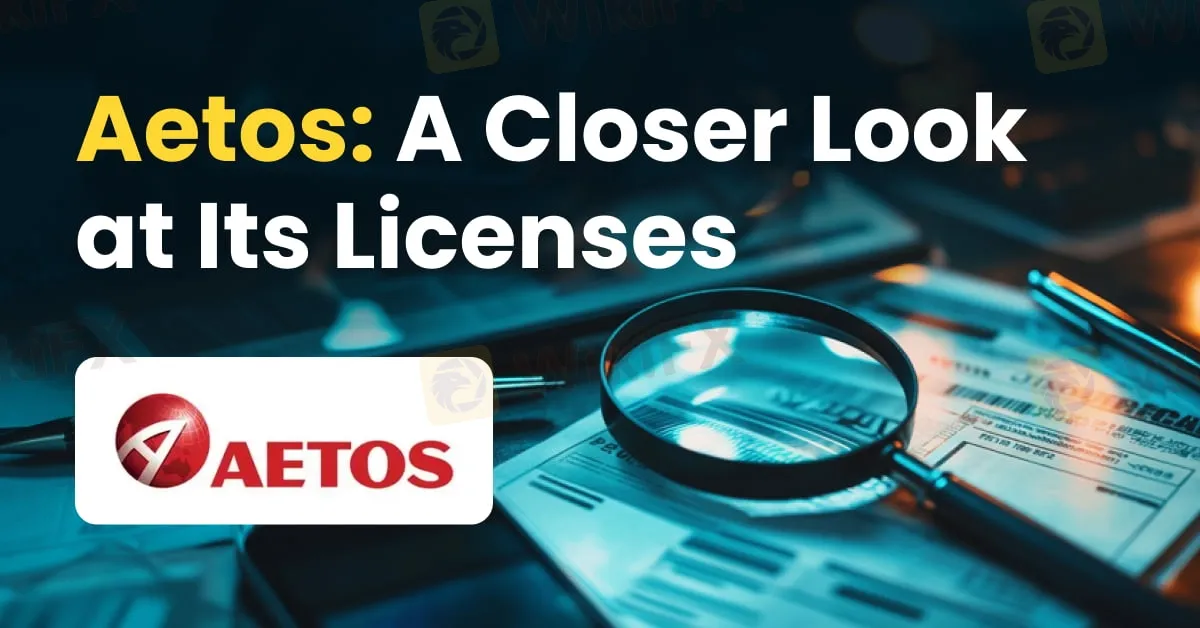Aetos: A Closer Look at Its Licenses
Abstract:With multiple regulatory entries and one license now revoked, Aetos stands as a broker requiring closer scrutiny from investors, particularly those prioritizing license scope and jurisdictional compliance.

Aetos is a broker that operates under a mix of active and revoked licenses across different jurisdictions. While it maintains regulatory approval in Australia, its former license in the United Kingdom has been revoked, and the broker has also been disclosed by the Securities Commission Malaysia. These factors are worth careful consideration by anyone evaluating Aetos as a potential trading platform.

Aetos holds an active license from the Australian Securities and Investments Commission (ASIC) under license number 000313016. The license falls under the Market Maker (MM) category. ASIC, Australia's primary financial regulatory body, is known for enforcing compliance with financial services laws and setting standards designed to protect consumers and investors.
Holding a license with ASIC indicates that Aetos is subject to certain operational and financial requirements, such as segregated client funds and regular compliance reporting. This offers some level of transparency and accountability within the Australian market.

Aetos previously held an Investment Advisory License from the UK Financial Conduct Authority (FCA), under license number 592778. However, this license is currently revoked. Moreover, this license was classified as a non-Forex advisory license, meaning that it did not cover retail forex services.
The revocation and the nature of the license raise important questions for traders and investors, especially those based in or targeting the UK market. The regulatory scope mismatch and subsequent license removal suggest that Aetos no longer falls under FCA supervision and may not be authorized to operate certain services in the UK.

In addition, Aetos has been publicly disclosed by the Securities Commission Malaysia, which indicates that the broker has been flagged or reported in that jurisdiction. While the implications of such disclosure can vary, it generally serves as a cautionary signal to investors in or dealing with the Malaysian market.
Understanding the scope and status of a broker‘s licenses is essential in today’s complex trading environment. Regulatory status may change over time, and what appears to be compliant today may not hold the same status tomorrow. For that reason, staying informed is a crucial part of risk management for any investor.
Conducting due diligence before investing is crucial, and independent verification tools such as WikiFX can be instrumental in assessing the legitimacy of brokers and investment firms. The WikiFX mobile application, available on Google Play and the App Store, provides comprehensive insights into brokers regulatory status, customer reviews, and safety ratings. By leveraging such resources, investors can make informed decisions and avoid the financial devastation caused by fraudulent schemes.

Read more

Investing Capital in Focus as Complaints on Withdrawal and Other Issues Mount
Explore this guide we have exposed Investing Capital, which has mounted concerns for traders by disallowing withdrawals and making them lose their hard-earned money.

4 Warning Signs That Indicate You May Get Scammed in Your Forex Investments
In this blog, we will share with you a guide telling you about the tactics fraudsters employ to dupe investors.

Global Brokers Vs. Indian Rules: Why They Struggle in India
RBI issued a warning last year against 75 forex brokers. Those brokers are globally popular and regulated in other countries, but they are banned in India. Only few brokers even have physical offices located in India. So, why do global brokers face so many challenges in entering the Indian market?

APX Prime: No Regulation, No Withdrawals? A Closer Look at the Red Flags
With no valid license, a questionable registration in Saint Vincent and the Grenadines, and unresolved client complaints, APX Prime presents risks that traders cannot afford to ignore.
WikiFX Broker
Latest News
Elon Musk's xAI raises $10 billion in debt and equity as it steps up challenge to OpenAI
European Central Bank's tightening cycle is done,' chief economist says
ACY Securities Expands Crypto CFD Offering with 24/7 Trading Access
Revelation: Makeup Artist, Social Media Influencer Involved in INR 1.62 Cr Forex Trading Scam
Social Trading Goes Mobile at M4Markets
Capital.com Strengthens UK FinTech Ties with Key Memberships
Crypto Craze Fizzling Out? Here is Why
10-year Treasury yield ticks higher as investors eye jobs report
Public companies bought more bitcoin than ETFs did for the third quarter in a row
Tokenized Stocks: Innovation or Just Another Wrapper?
Rate Calc

